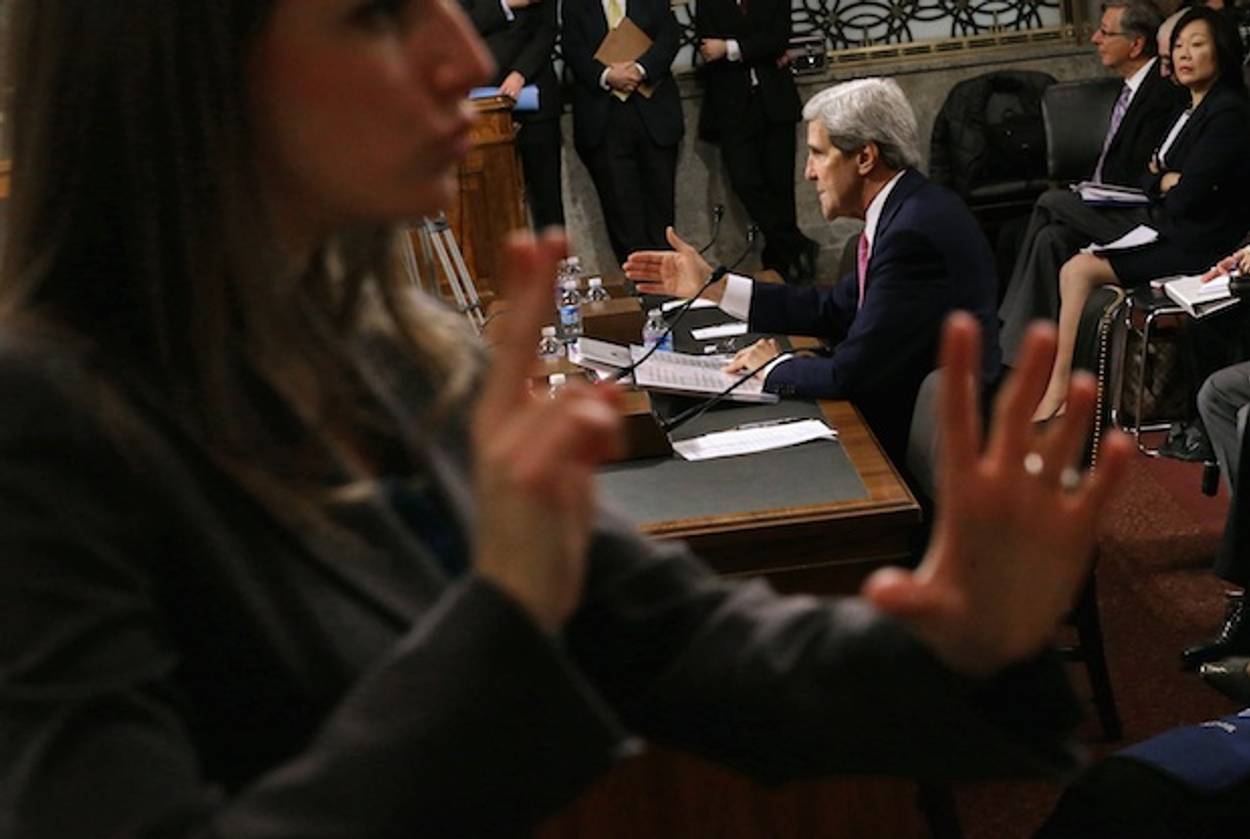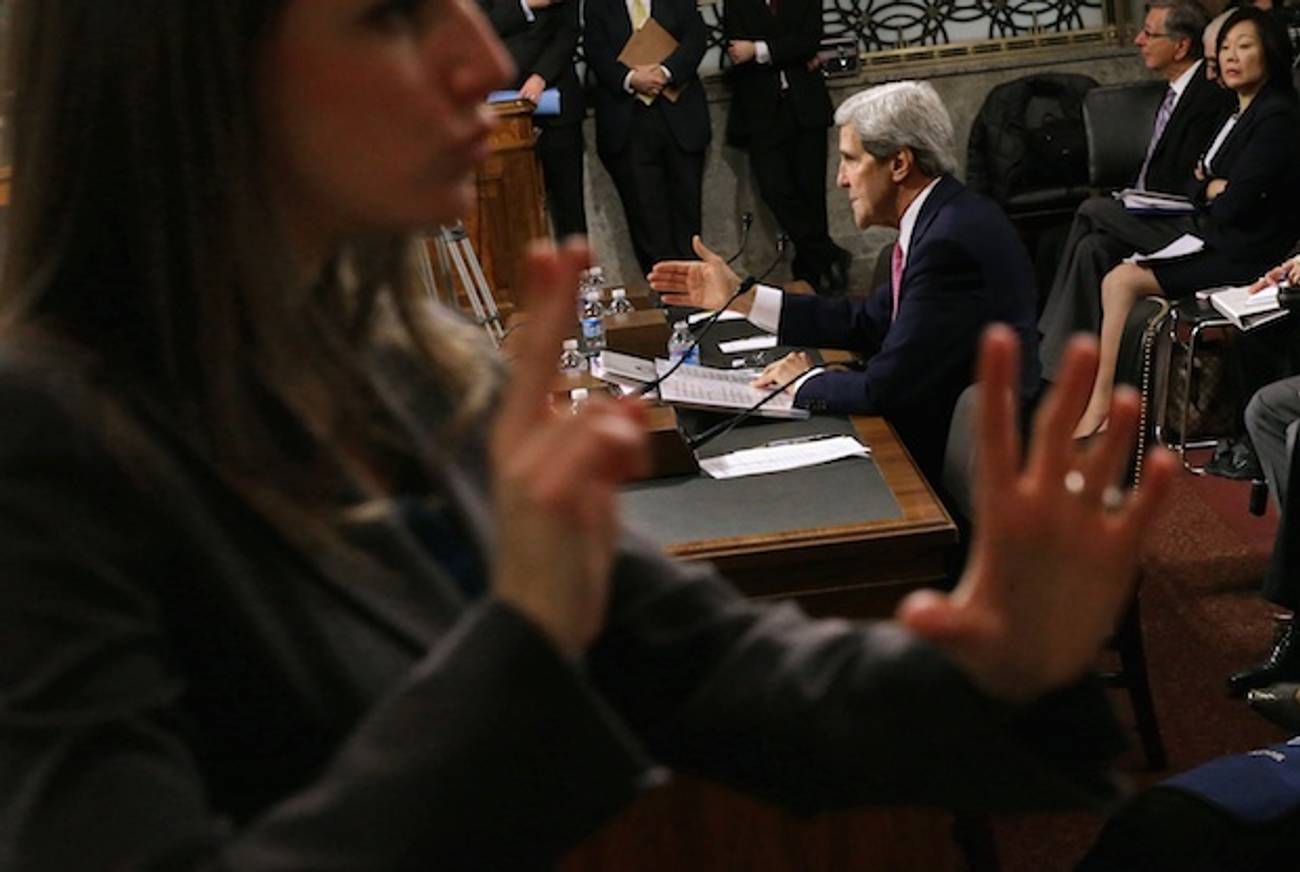Arguing for Israel’s Security First in Peace Talks
Before concessions on borders, Israel demands its safety be guaranteed




As we mentioned earlier this week, Secretary of State John Kerry arrived in Israel on Wednesday to help revive the flagging peace talks between the Israelis and the Palestinians. If there were a concession made for each time we said this about Kerry, well…there’d probably be a peace deal. Unfortunately, we’re not quite there just yet. To help move things along, Kerry is focusing on Israel’s security, which it is prioritizing because there’s really no point in making a peace agreement if a country is going to feel less secure after the fact. (You’d think that this nugget would be filed under Peacemaking 101).
Over at YNet, Ron Yishai spells out, quite compellingly I may add, about why Israel’s security must be resolved before all other issues.
Israel, and rightfully so, is unprepared to discuss the borders of the Palestinian state and all the other subjects which have to do with territory before an agreement is reached on the security issue.
Only thanks to Israeli control over the border crossings between the West Bank and Jordan has it been possible to prevent a massive spillover of al-Qaeda activists and explosive devices into the West Bank and Israel. Israel also notes that the attempt to place European inspectors at the border crossings between Gaza and Egypt failed miserably, and that following the Hamas coup in 2007 the supervisors ran for their lives.
Even more important is thwarting terror in the West Bank by collecting intelligence and conducting arrests. Israel says that it is only thanks to the operational and intelligence freedom of action that the IDF and Israel Security Agency have throughout the territories, including those under Palestinian control, has it been possible to foil more than 80% of the acts of terror which threaten not only Jews but also the survival of the Palestinian Authority.
To this he introduces the possibility that Jordan may finally succumb to the mayhem of the Arab Spring or that Palestinians may finally overthrow the Palestinian Authority or a third intifada may break out, all of which constitute pretty good reasons to have these issues ironed out so that the peace talks may progress. For a smart, more depressing read, Herb Keinon adds that the Iranian nuclear deal (that Israel is decidedly not in love with) only enhances the urgency for a robust security agreement.
Unfortunately, the security proposals brought forth by Kerry have reportedly been rejected by the Palestinian leadership, which will probably find it quite difficult to sell an agreement that involves any Israeli military presence in their future state.
The official, who spoke on condition of anonymity and declined to elaborate on the proposals, said Kerry presented them to Palestinian President Mahmoud Abbas after discussing them separately with Israeli Prime Minister Benjamin Netanyahu.
“The Palestinian side rejected them because they would only lead to prolonging and maintaining the occupation,” the official told Reuters, referring to Israel’s hold on the West Bank, where, along with Gaza and East Jerusalem, Palestinians seek an independent state.
By the way, in a telling development, Jordan also signaled its support for a long-term Israeli security presence in the Jordan Valley.
Adam Chandler was previously a staff writer at Tablet. His work has appeared in the New York Times, the Wall Street Journal, the Atlantic, Slate, Esquire, New York, and elsewhere. He tweets @allmychandler.